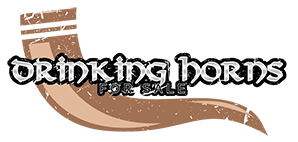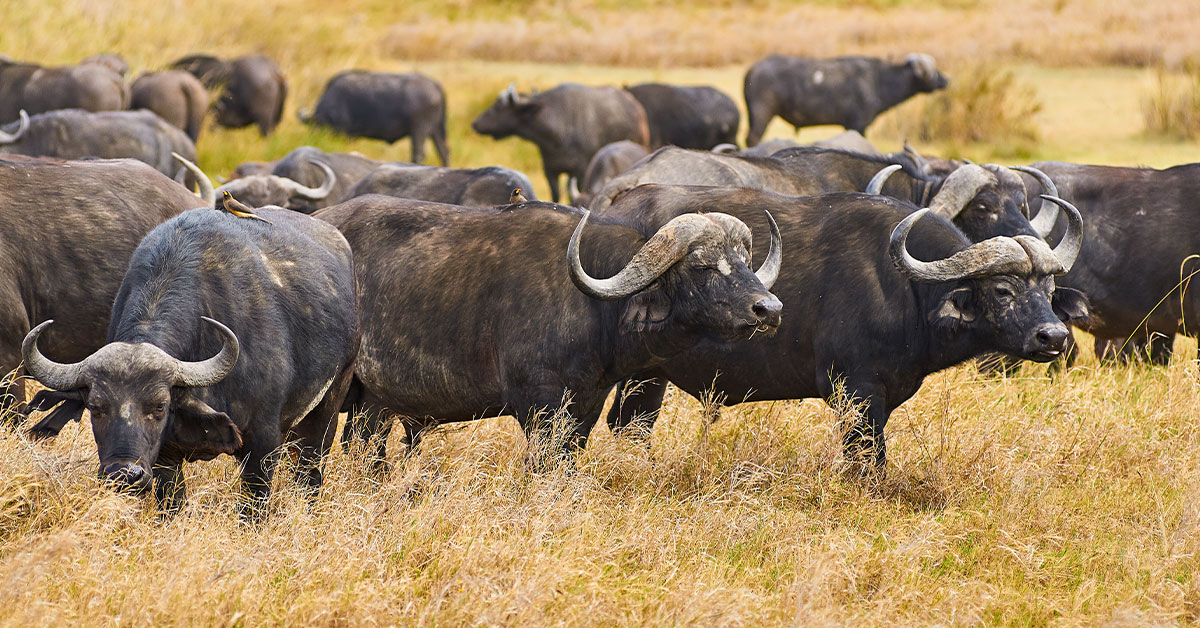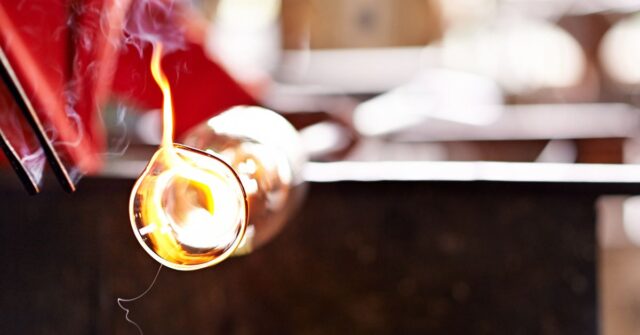Welcome to an in-depth exploration of sustainable practices within the drinking horn industry.
This post aims to enlighten enthusiasts and potential buyers about the importance of sustainability in the production and use of drinking horns, a product with a rich history and cultural significance.
Introduction to Drinking Horns
Drinking horns have been a part of human culture for centuries, used by various civilizations across the globe.
Originally, these were practical items for everyday use, but over time, they have transformed into ceremonial and decorative objects, often associated with historical reenactments and cultural festivals.

History and Cultural Significance
The use of drinking horns dates back to ancient times, with evidence found in Viking, Celtic, and other medieval cultures.
They were not just vessels for drinking but also symbols of status and valor, often intricately decorated and cherished.
Modern Use and Popularity
In contemporary times, drinking horns have seen a resurgence in popularity, especially among enthusiasts of historical reenactment, fantasy literature, and films.
They are also popular as unique gifts and decorative items, blending historical allure with modern aesthetics.
Understanding Sustainability in Horn Crafting
Sustainability in horn crafting involves practices that are environmentally responsible, economically viable, and socially equitable.
This includes the entire lifecycle of the product, from sourcing to manufacturing and disposal.
What Makes a Practice Sustainable?
A sustainable practice in horn crafting minimizes environmental impact, ensures the ethical treatment of animals, and supports local economies.
It also involves using resources efficiently and creating products that are durable and long-lasting.
Environmental Impact of Horn Production
The production of drinking horns can have various environmental impacts, including resource consumption and waste generation.
Sustainable practices aim to reduce these impacts through the efficient use of materials and energy.
Sources of Horns: Ethical Considerations
The source of horns is a crucial aspect of sustainable and ethical horn crafting.
It involves considerations around how the horns are obtained, the welfare of the animals, and the legal and ethical implications of horn sourcing.
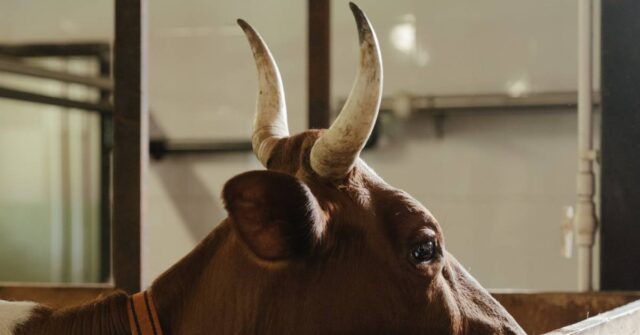
Animal Welfare in Horn Acquisition
Ensuring animal welfare is paramount in ethical horn acquisition.
This means sourcing horns from animals that have been treated humanely and ethically, preferably as a by-product of the food industry, rather than from animals hunted specifically for their horns.
Regulations and Ethical Sourcing Standards
Adhering to regulations and ethical sourcing standards is essential.
This includes complying with local and international laws regarding wildlife protection and trade, as well as following guidelines set by environmental and ethical bodies.
Manufacturing Processes
The manufacturing process of drinking horns involves several stages, from cleaning and shaping the horn to finishing and decorating it. Each stage presents opportunities for sustainable practices.
Traditional vs Modern Crafting Techniques
Traditional crafting techniques often involve hand tools and natural materials, which can be more sustainable than some modern methods.
However, advancements in technology have also led to more efficient and environmentally friendly manufacturing processes.
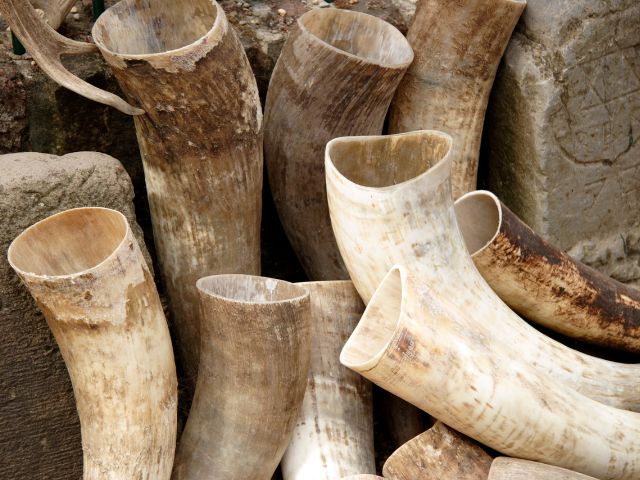
Reducing Waste and Energy Consumption
Minimizing waste and energy consumption is a key aspect of sustainable manufacturing.
This can be achieved through practices like recycling materials, using renewable energy sources, and optimizing production processes for efficiency.
Finishing and Decoration
The finishing and decoration of drinking horns are crucial for their aesthetic and functional qualities. Sustainable practices in this stage involve using eco-friendly materials and methods.
Eco-Friendly Materials for Finishing
Using natural, non-toxic finishes like beeswax or plant-based oils not only is environmentally friendly but also preserves the horn’s quality and ensures safety for users.
Sustainable Practices in Ornamentation
Sustainable ornamentation involves using materials that are ethically sourced and environmentally friendly.
This includes avoiding plastics and opting for natural or recycled materials for any decorative elements.
The Role of Local Communities and Artisans
Local communities and artisans play a vital role in the sustainable horn industry. Supporting these groups helps preserve traditional skills and promotes economic sustainability within these communities.
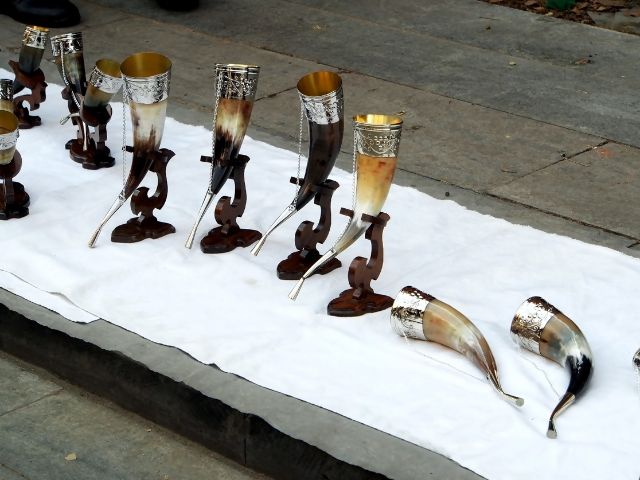
Supporting Traditional Crafts and Skills
By purchasing horns crafted by local artisans, consumers support traditional crafting skills and help sustain these practices for future generations.
This also ensures a higher level of craftsmanship and quality in the products.
Community-Based Sustainable Models
Community-based models focus on creating a sustainable industry that benefits local economies and preserves traditional crafts.
These models often involve fair trade practices and direct support to artisan communities.
Consumer Choices and Impact
Consumers play a significant role in promoting sustainability in the drinking horn industry.
Making informed choices can have a profound impact on the environment, animal welfare, and artisan communities.
Identifying Sustainable Products
Consumers should look for products that are certified sustainable, ethically sourced, and made using eco-friendly practices. This information is often available on product labels or from sellers.
Making Informed Purchasing Decisions
Understanding the impact of one’s purchase decisions is crucial. Consumers should consider the sustainability of the entire lifecycle of the product, from sourcing to disposal, before making a purchase.
Future Trends and Innovations
The drinking horn industry, like many others, is evolving with new trends and innovations that promote sustainability. This includes the use of alternative materials and more efficient manufacturing processes.
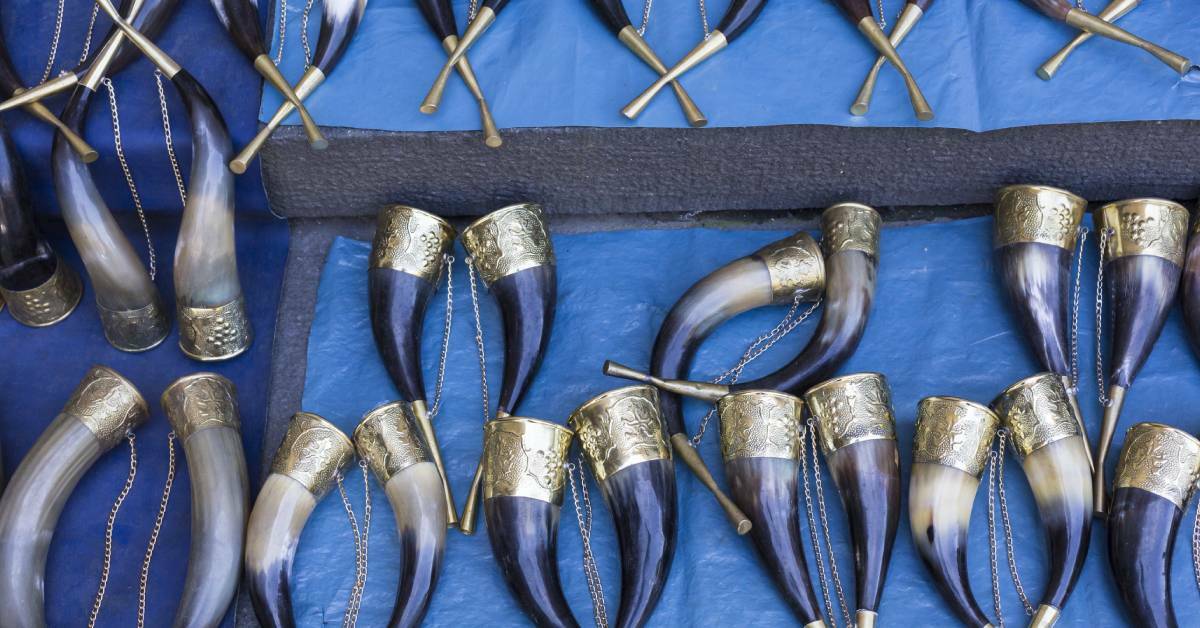
Advancements in Sustainable Materials
Research and development in sustainable materials are leading to new possibilities in horn crafting. These include biodegradable and recycled materials that can mimic the properties of natural horns.
Industry’s Role in Environmental Conservation
The drinking horn industry has a responsibility towards environmental conservation.
This includes participating in reforestation efforts, wildlife protection initiatives, and contributing to the overall reduction of the industry’s carbon footprint.
Conclusion
In conclusion, sustainable practices in the drinking horn industry are not only beneficial for the environment and animal welfare but also for preserving cultural heritage and supporting local economies.
By embracing these practices, both producers and consumers can contribute to a more sustainable future.
Summarizing Sustainable Practices
In summary, sustainable practices in this industry include ethical sourcing of materials, efficient and eco-friendly manufacturing processes, support for traditional crafts, and informed consumer choices.
Embracing these practices ensures the longevity and ethical integrity of the drinking horn industry.
